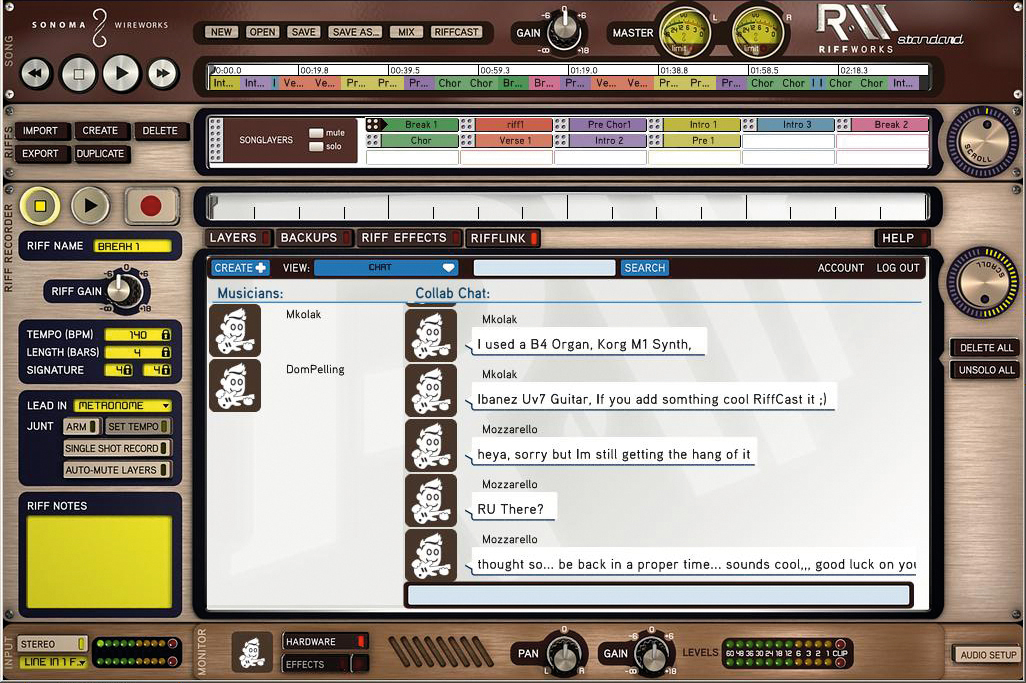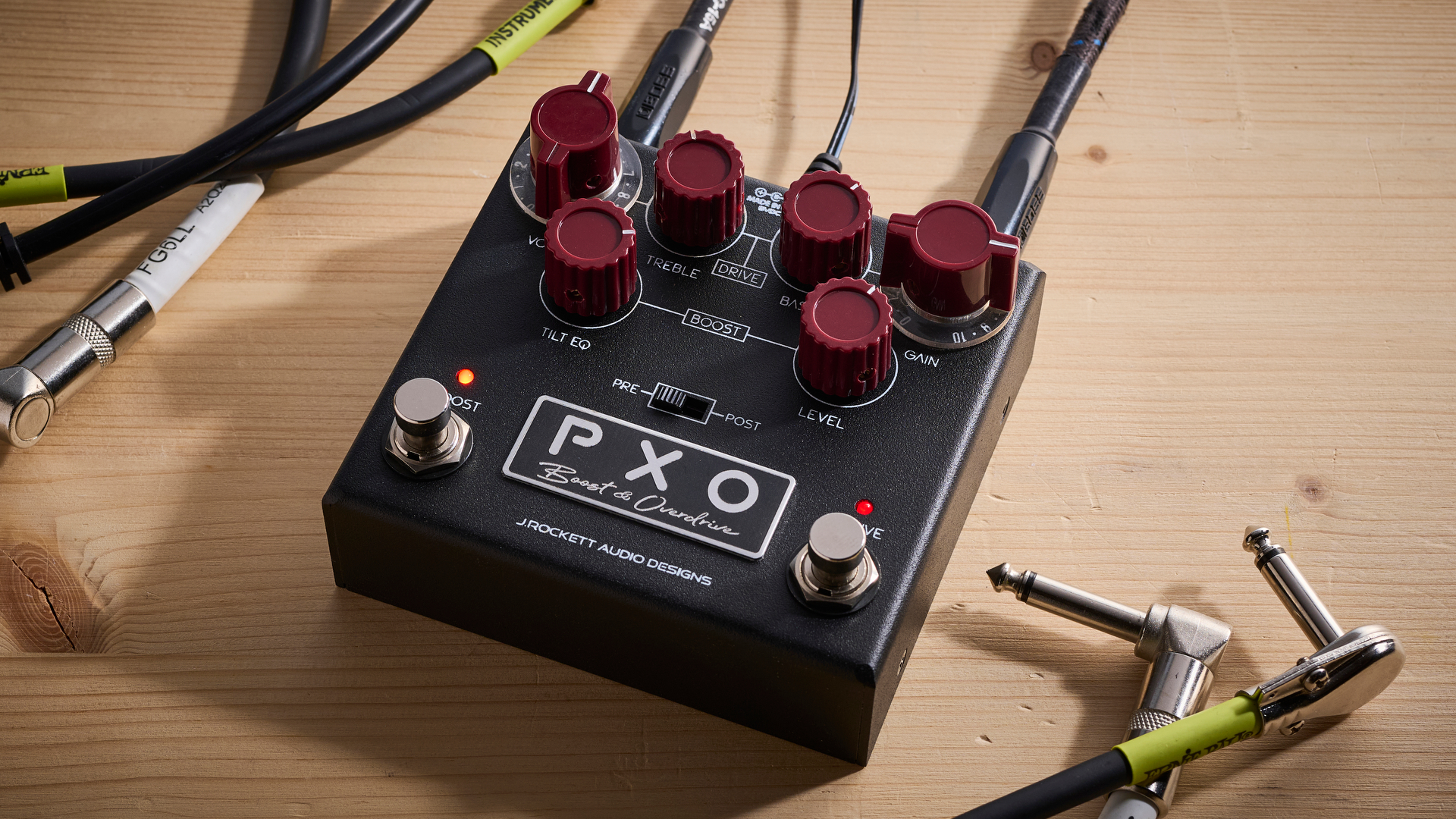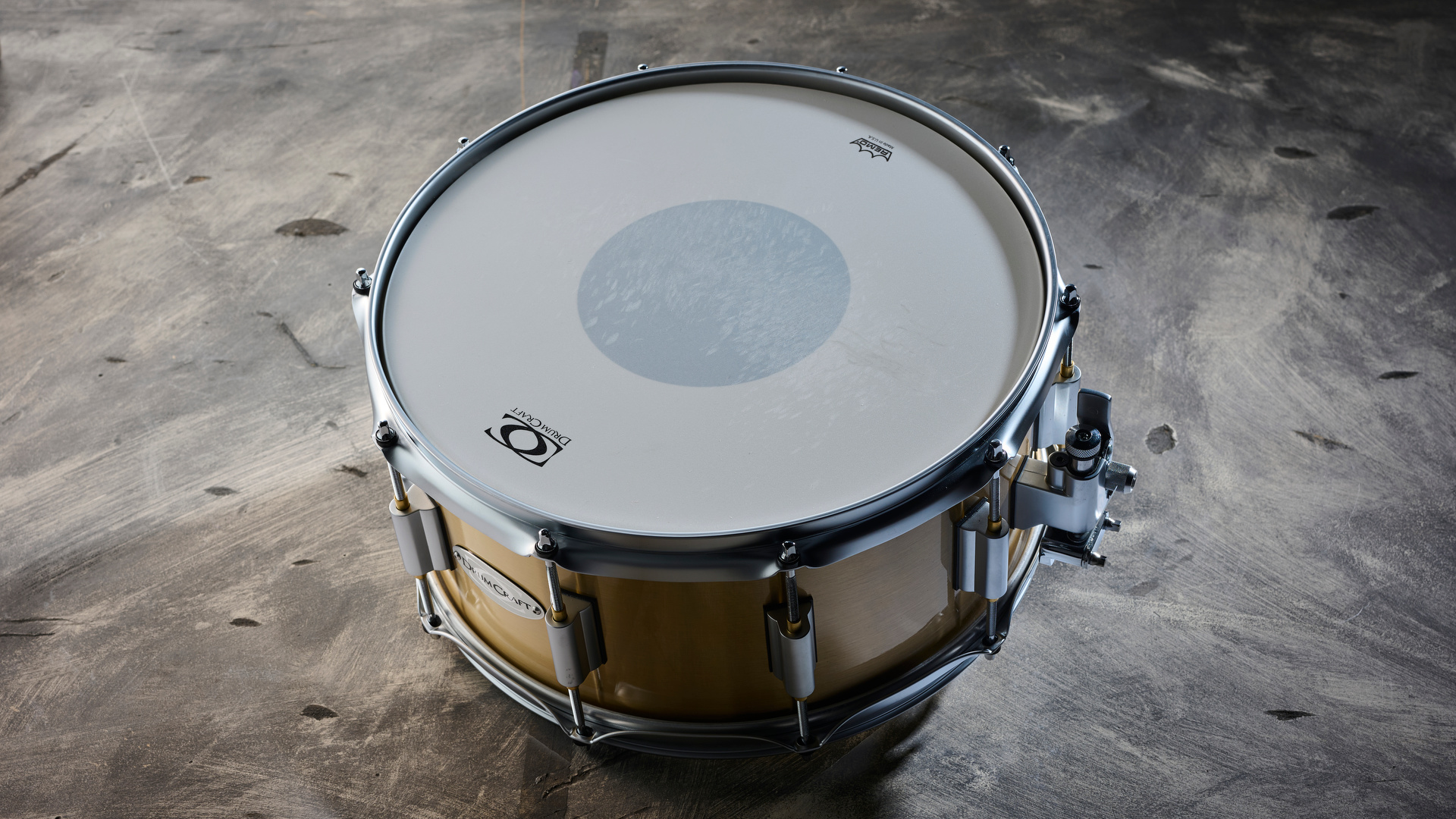MusicRadar Verdict
A fine sequencing solution for guitarists, particularly those who fancy a bit of online collaboration action
Pros
- +
Extremely easy to use. Highly productive. Good effects and useful Backup section. Collaborate with other RiffWorks users. Easily post your own songs online.
Cons
- -
AmpliTube LE less flexible than other amp emulation software. Collaborations limited to four active members.
MusicRadar's got your back


If RiffWorks Standard came in a box (it's actually available only as a download), a chorus of angel song would break out from it when you lifted the lid. It would be Hells Angels singing, of course, and they'd have long hair, Les Paul guitars and a penchant for eight-finger tapping.
We first encountered the RiffWorks software in September last year - it forms the recording and effects processing side of the GuitarPort RiffTracker package. We loved its great sounds and general simplicity.
RiffWorks Standard is the standalone version of the software. It can be used with any ASIO- or Core Audio-compatible audio interface and bought directly from the Sonoma Wire Works website. Installation takes around 30 seconds, and although instructions are provided, you probably won't need them. Basically, you just have to start up RiffWorks, plug in and play.
Button it
The user interface is built on an attractive brushed aluminium background. Sections are clearly marked and there's not a single menu to be found. Every function has its own button, so it's actually very difficult to get confused.
At the top of the interface is the sequencer - this is known in RiffWorks as the Song section. Songs are developed by dragging Riffs from the Riffs section below and dropping them into the Song timeline. Riffs can be placed in any order and at any point in the song. This method enables you to build tracks incredibly quickly.
Clicking on a Riff displays its component Layers in the large window at the centre of the interface. Each Layer has solo, mute, pan and gain controls, a signal level meter and seven effects. In this new version of RiffWorks, Layers feature an Info button that enables you to display the recorded waveform in a track below the Layer, and clicking on the waveform enables you to edit the volume envelope. It's a simple and very useful system.
A set of Riff parameters enables you to set the tempo, length (in bars) and time signature of the riff. These values become locked once a recording has been made. Elsewhere, a handy Riff Notes section has been added so that you can jot down lyrics, shopping lists and other such important information. Also worthy of mention is the awesome Junt function. Using this, you can arm record or set the track tempo by palm muting your guitar strings and giving them a bash with the pick.
Crunch time
The input section at the bottom of the screen is where you set your guitar tone. A copy of AmpliTube LE comes included with RiffWorks Standard and it can be accessed via the effects button that you'll find here. It sounds great, but it's nowhere near as comprehensive as the GuitarPort software that comes included with the RiffTracker package.
If you wanted a more flexible solution, you could always buy alternative amp sim software (the full version of AmpliTube 2, for example), but obviously, this will cost extra.
The most interesting of the new features are RiffCast and RiffLink. Clicking the RiffCast button enables you to directly upload your track as a Podcast to the RiffWorks server, eliminating the need to export a file and then send it via email.
Personal information and comments about the music can be added before you upload to the RiffCaster site, and handily, each song is given a unique URL so that you can link directly to it. Your track is posted to a 'station' of your choice (eg, Shred, Rock Songs, Musical Fragments, Synth Rock) so like minded RiffWorks musos should be able to find it easily.
Link up
RiffLink is currently at the public beta stage of development and enables you to collaborate with other RiffWorks users anywhere in the world. It's free at the moment, but when it's complete it'll be subject to a monthly subscription fee (following a 60-day free trial).
Collaborations can be accessed via the Sonoma Wire Works website and can be worked on by an unlimited number of people. However, only four can do so simultaneously - these people can discuss the track via an exclusive messenger client that's displayed within the interface.
Once you've implemented a change into the song, it can be uploaded for the other collaborators to see. Changes made by others are displayed only when fully downloaded. The quality of collaborations can vary, with some being very well structured and others lacking any sense of continuity.
But that's the joy of it - you just have to get involved and see what happens. Technically, the system seems to work very well and there are already several stalwart users who can be found online every night.
RiffWorks Standard 2 is an easy-to-use recording package that guitarists will love. The simplicity of the interface and the quality of the results you can achieve ensure that it's suitable for beginners and more experienced users alike, while the online features are fun to use and give you an extra incentive to make music. Sonoma Wire Works have set a fine standard here - their software is genuinely different to everyone else's and all the more appealing for it.
MusicRadar is the number one website for music-makers of all kinds, be they guitarists, drummers, keyboard players, DJs or producers...
- GEAR: We help musicians find the best gear with top-ranking gear round-ups and high-quality, authoritative reviews by a wide team of highly experienced experts.
- TIPS: We also provide tuition, from bite-sized tips to advanced work-outs and guidance from recognised musicians and stars.
- STARS: We talk to musicians and stars about their creative processes, and the nuts and bolts of their gear and technique. We give fans an insight into the craft of music-making that no other music website can.
“They perform incredibly well over many decades, just like I have and of course they're incredibly good-looking, just like me”: Alice Cooper launches his own limited edition reel-to-reel tape recorder
“Thom was like ‘No, get rid of all of that - you’ve lost what’s good about it!’”: Mark Pritchard tells us how he and Thom Yorke made the sublime Tall Tales
“Tonight is for Clem and it’s for friendship. An amazing man and a friend of the lads”: Sex Pistols dedicate Sydney show to Clem Burke










